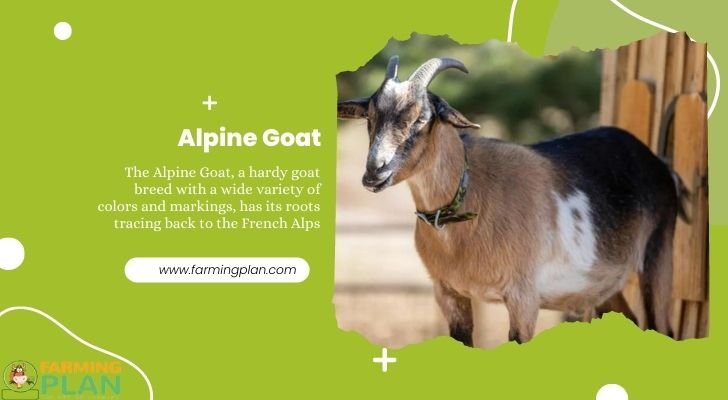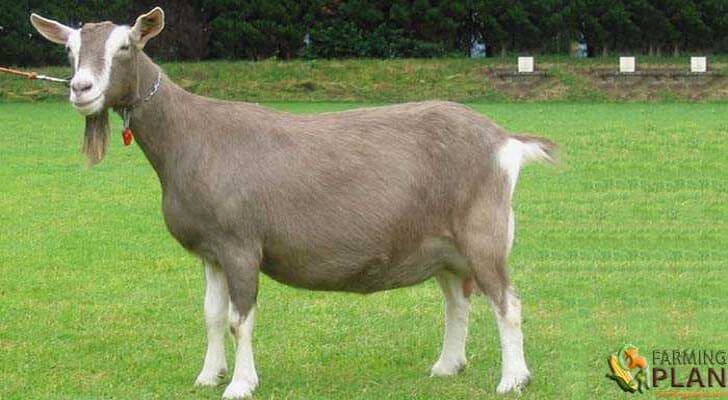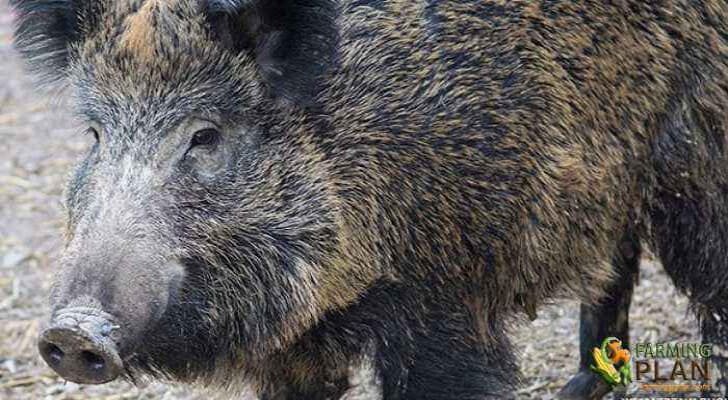If you are thinking of becoming a goat farmer, the Alpine Goat is an excellent choice! Known for its extraordinary milking ability along with its unique characteristics – like horns, a straight profile, and erect ears – this breed of domestic goat has it all. Not to mention that there’s no set color or markings – each one is unique in its way and full of personality. In this blog post, we will provide everything from health care tips to reproductive information when it comes to raising your very own herd of Alpine Goats

History & Origin
The Alpine Goat, a hardy goat breed with a wide variety of colors and markings, has its roots tracing back to the French Alps. First bred intentionally in the 1800s, these goats were prized for their superior milking ability in an era where access to dairy products was limited. Horned, with a straight profile and erect ears, they are well adapted to the harsh winter climate of their native home. Today, Albina Goats can be found not only in France but throughout Europe and North America as well, a testament to their enduring popularity amongst generations of goat herders and farmers.
Characteristics
The Alpine goat is a beloved pet and livestock animal for many reasons. This domesticated breed has established a long-standing reputation for its remarkable milk production abilities, making it a reliable and profitable investment to many farmers worldwide. Not to mention their endearing personalities! They come in an array of coolers and sizes with strong, curved horns, straight posture, and perky ears dotted atop a fluffy head. This beautiful breed is sure to be long-loved by those who appreciate their hardworking and lovable character.
Feed
Alpines are a hardy breed, known for their superior milking ability. They require good-quality feed to stay healthy and produce high-quality milk. Many owners of Alpines choose to give them specially formulated feed that supports the goat’s daily nutritional needs, such as hay, alfalfa pellets, oats, and minerals. This ensures that the goats are getting all the essential nutrients that keep them producing top-notch milk throughout the year. Additionally, many Alpine farmers provide their goats with extra snacks like apples or carrots as special treats in between meals, helping to make them even happier and stronger animals.
Usage
The Alpine goat is a popular choice for dairy producers, especially in Europe. This breed has quickly become known as one of the best dairy goats due to its good milking abilities and impressive size. They also come in a variety of colours and markings, making them an attractive barnyard addition. The Alpine goat also boasts horns, a straight profile, erect ears, and other distinct physical characteristics that make them stand out from the rest. With its ability to produce high-quality milk in generous quantities, this breed is sure to give owners plenty to be proud of.
Special Feature
Despite their lack of set color or markings, the Alpine goat has a special feature setting it apart: its excellent milking ability! The medium to large size breed is known for producing considerable amounts of milk in comparison to other breeds, making them a great choice for those interested in dairy. Aside from their luxurious milk production capabilities, the Alpine goat has horns, a straight profile, and erect ears; giving them an elegant and unique look.
Advantages of having an Alpine Goat
The Alpine goat is a breed of domestic goat that stands out from the rest for its milking ability. It is a mid-to-large size breed, with horns, a straight nose and ears that point up towards the sky. One of the advantages of selecting an Alpine Goat as part of your farming operation is their versatility – they do not have any set coloring or markings, which makes them suitable for a variety of different roles. Plus, they are known to produce high amounts of milk, making them a top choice for dairy farmers who want to maximize their yield in comparison with other breeds. If you’re looking to include some animals in your farm, make sure you consider the Alpine goat!
How to care for an Alpine Goat
An Alpine goat is a medium to large-sized breed of domestic goat and can make for a great farm animal. Besides the standard diet of hay and grains, healthily bred Alpine goats enjoy a diet of high-fiber vegetables to maintain optimal nutrition. Additionally, Alpines require specific housing arrangements depending on your climate – chickens may provide warmth to Alpines in winter months while providing camouflage in summer months. Horns must also be trimmed and hooves checked routinely as a part of an Alpine’s maintenance; this helps prevent extreme overgrowth that can cause pain or even disease. Establishing a routine veterinarian visit will help ensure an Alpine’s health throughout its life – never forget just how important it is to properly care for any living animal!
Tips for breeding
Breeding and raising healthy Goats can be a rewarding experience, as they are known for their good milking ability. When looking to breed Alpines, it is important to pay attention to the breed’s characteristics. Alpines have horns, a straight profile, and erect ears, and come in a variety of colors and markings. Additional key elements for successful breeding include paying special attention to nutrition, genetics, management practices, and the health of the herd. Finally, ensuring adequate shelter from extreme weather conditions is essential for the well-being of goats raised in a domestic setting. With proper care and dedication to detail, raising a healthy Alpine Goat flock will bring lasting joy and satisfaction.
Common health issues
Alpine are a hardy breed, but they can sometimes be susceptible to common health concerns such as John’s Disease, mastitis, and parasites. It is essential to look out for the signs of these health issues in an Alpine goat to prevent it from getting worse. Goats with horns should receive regular trimming and de-horning assistance if needed and parasite prevention is always important for all goats. Proactive management of common health concerns in Alpine goats is necessary for their long-term well-being.
FAQ
What is an Alpine goat called?
An Alpine goat, also known as the French Alpine, is a breed of dairy goats popular for its quality milk production. It is one of the oldest registered goat breeds in the world and is considered to be among the most adaptable and efficient goats when it comes to milking production.
Are Alpine goats friendly?
Absolutely! Alpine goats are some of the friendliest and most docile goat breeds out there. These gentle creatures are designed for human interaction and make wonderful pet goats for small-acreage farms or urban homesteads.
What are the disadvantages of Alpine goats?
Alpine goats are a breed of domesticated goats that originated in the French Alps region and quickly spread around the world due to their hardy nature, adaptability, and milk production. Like any other species, however, Alpine goats come with their own set of pros and cons.
Conclusion
Regardless of whether you are looking for an animal that produces milk, keeps your grass short and tidy, or is simply a cute addition to your farm, the Alpine goat is a great choice. Their docile temperaments, lack of set color and markings, and great milking ability make them a favorite among many farmers. With proper care and attention, you can enjoy the benefits of an Alpine goat for years. From their hearty diet to their overall healthy disposition, these goats have so much to offer. Just be sure to stay on top of their health checkups and vaccinate when due. With that being said if you’re ready to welcome an Alpine goat into your family, then all you need to do is follow these guidelines above!


